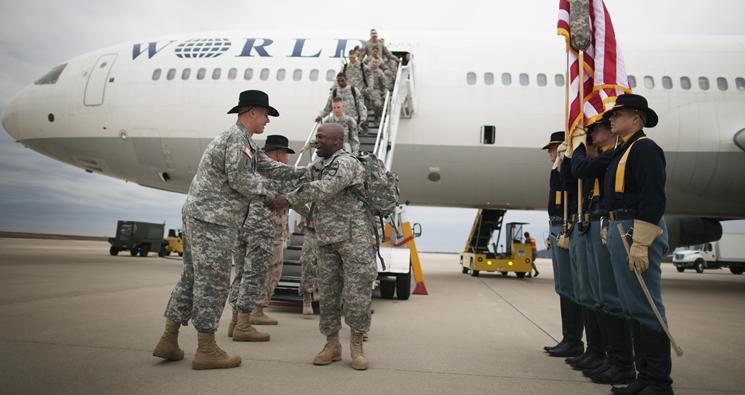The VA’s Disgrace and Bureaucracies’ Inevitable Failure
So the VA is getting tough now. After revelations in state after state that the VA has essentially cooked its books to hide scheduling delays that could have been fatal to a number of veterans, VA leadership is cracking down by . . . placing a handful of employees on administrative leave.
As we say in the South, that’ll learn ’em. There’s nothing like a few paid vacations to strike fear into the heart of wrongdoers.
One of the more sobering aspects of serving as a JAG officer is learning the sheer complexity of the federal employment system. Simply put, it’s difficult to the point of pain to fire an employee. In fact, in some federal agencies, employees are “more likely to die of natural causes than get laid off or fired.” In 2011, the federal government fired 0.55 percent of its employees, with some entire departments not firing a single employee for poor performance. The rate in the private sector is almost six times higher.
Entire seminars are devoted to teaching lawyers the multi-layered process for firing a merit system-protected federal employee, and even after the seminars’ lawyers consistently foul up the complex system. In my civilian jobs, by contrast, the mechanism for firing an employee has been the following: Step 1 — open mouth. Step 2 — utter the words, “You’re fired.” Step 3 — escort employee to the door.
I’m sorry, but if the process for termination is complex, expensive, and difficult, then employees can and will game the system with near-impunity. Spend much time talking to conscientious VA employees, and they’ll tell you stories of the colleague caught snorting cocaine in the parking lot who’s allowed to work the next day, other colleagues who do nothing but surf the web and run eBay businesses from their office, or others who milk complaint processes to make life miserable for supervisors who try to impose order and efficiency. The system is so dysfunctional that top-down demands for improvement and efficiency are simply laughed off.
The military is plagued with similar deficiencies. While the deployed military is hardly perfect, the immediacy of danger and the horrific real-world consequences of failure do create a mindset that can cut through red tape to properly sustain and support our forces at the tip of the spear, but when you arrive back home, the world changes. I was astonished and remain astonished at the amount of paperwork (often 100-plus pages that must be perfectly completed) required to toss out of the Army Reserve a soldier who not only fails to show up for work for months, but also refuses to answer any inquiries from his command. And don’t get me started on the bureaucratic minefield that is the medical separation process. Talk to any soldier about military bureaucracy and prepare to hear stories that will shock anyone but an employee of another federal agency.
It is an immutable law of human nature that extremes of job security will quite often result in extremes in incompetence and corruption. You can clean house at the top of the VA, but until the VA can clean house at all ranks — or, better yet, until the VA can clean house at all ranks and faces an existential threat to its very existence (in the same way that incompetent private-sector businesses do) — we’ll continue to stain our national honor by mistreating our nation’s heroes.
Bureaucracies fail. It’s the thing they do best.
